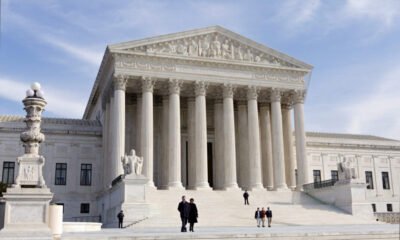courts
Court Upholds Voter Power in Regulating Judges

A Yavapai County judge ruled on Friday that the Judicial Accountability Act, a legislative referral altering judicial retention elections and incorporating legislative oversight into the Commission on Judicial Performance Review, does not violate the state constitution’s separate amendment rule or bear a misleading title.
With the potential for an appeal to the Arizona Supreme Court, questions loom about whether justices should recuse themselves given their involvement in the system being contested.
The Judicial Accountability Act, known as Proposition 137, would allow judges and justices in counties using the merit selection system to bypass periodic retention elections under “good behavior.” The Act also authorizes each legislative chamber to appoint a member to the Judicial Performance Review commission and establishes an investigative mechanism for complaints from lawmakers.
If approved, the Act would nullify the results of the 2024 retention elections.
Progress Arizona and its political action arm, Progress Arizona PAC, attempted to block the measure from the ballot. They argue that it impacts multiple sections of the state constitution and has an unsuitable title, contending that it actually reduces judicial accountability.
Judge John Napper ruled that the amendments in the Act are topically and facially related, which negates claims that it violates the separate amendment rule.
However, Napper highlighted concerns about the separation of powers, noting that the referral “inserts the legislature into the functions of the judiciary,” making the branches less independent than before its adoption.
He concluded that the amendments pertain to more than one section of the constitution but are all related to retention elections, dismissing any claimed violations.
Napper also rejected Progress Arizona’s titling claim, stating that “Judicial Accountability Act” is “value-neutral” and accurate, given the measure creates a new method for accountability under legislative oversight.
“The decision is now up to the people,” Napper wrote. “They will either reject or adopt SCR 1044, fully aware of modifications to their right to vote for judges and the intrusion into judicial independence. A tough decision, but not one they have been deceived into making.”
James Barton, attorney for Progress Arizona, said the group is still contemplating its options for appealing to the Arizona Supreme Court.
If the case reaches the state supreme court, the concern about whether justices, who are subject to the election scheme, should recuse themselves remains.
Napper presided over the lower court case after Maricopa County Superior Court Judge Randall Warner recused himself, given his involvement in the retention system and membership in the judicial performance review commission. Yavapai County directly elects its judges, hence Napper’s eligibility.
If the matter progresses to the supreme court, the plaintiffs might seek the justices’ recusal. However, Barton declined to comment on this potential action.
Kory Langhofer, representing Senate President Warren Petersen and House Speaker Ben Toma, argued that recusal is unnecessary, citing the “rule of necessity” in the Arizona Rules of Civil Appellate Procedure. This rule allows a judge to preside despite disqualification rules when no other judge is available for an urgent matter.
Progress Arizona must file a notice of appeal by August 7.


















